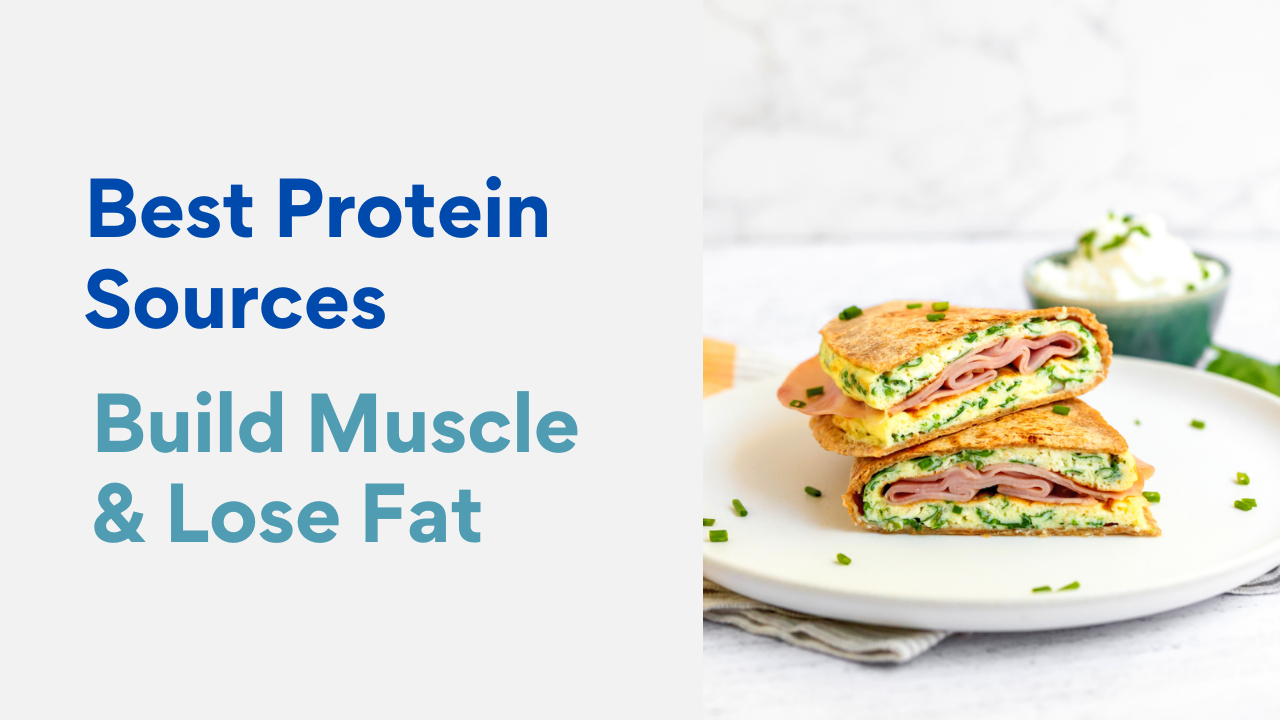Top Protein Sources for Fat Loss, Muscle, and Long-Term Health
Protein is essential for fat loss, muscle, and energy—but not all sources are created equal. Learn which proteins actually support your goals, how to balance animal vs. plant, and simple ways to eat smarter every day. Watch the full video now!

When it comes to changing your body, few nutrients are as powerful as protein.
Whether you're aiming to lose fat, build lean muscle, or simply feel more energized day to day — protein should be at the center of your nutrition strategy.
But not all protein is created equal.
In this post, we’ll break down:
- The difference between animal and plant-based protein
- What makes a protein “complete”
- How to hit your goals without living off chicken and dry rice
Watch the full breakdown here:
Learn how to choose the best protein sources to fuel your body, build lean muscle, and support long-term fat loss.
Why Protein Matters So Much
Protein does more than just help you build muscle. It’s essential for:
✅ Fat loss and body recomposition
✅ Reducing hunger and controlling cravings
✅ Supporting your metabolism
✅ Preventing muscle breakdown (especially while losing weight)
✅ Boosting recovery and energy levels
Most people, especially active adults and those over 35, under-eat protein — or rely on low-quality sources that don’t deliver results.
High-Quality Protein Sources to Focus On
Here are some of the best complete protein options to prioritize:
Animal-Based Proteins:
- Chicken breast
- Salmon
- Lean ground beef or turkey
- Eggs and egg whites
- Greek yogurt
- Cottage cheese
- Whey protein (powder)
Plant-Based Proteins:
- Tofu and tempeh
- Edamame
- Lentils and chickpeas
- Quinoa
- Protein-enriched plant milks
- Pea or rice protein powder
Pro Tip: If you’re eating plant-based, pair complementary sources (like beans + rice) to make a complete protein.
How Much Protein Do You Actually Need?
A good starting point:
1.6–2.2g of protein per kilogram of body weight (or ~0.7–1g per pound).
This range supports fat loss, muscle maintenance, and long-term strength.
Make Protein Simple — and Actually Enjoyable
You don’t have to track every gram or live off chicken and broccoli.
You just need the right tools — meals that fit your goals, easy planning help, and support you trust.
Want to take the guesswork out of your nutrition?
The Weight Management & Longevity Club gives you everything you need to eat better, feel better, and make progress without restriction.
First 7 days are free — then just $14/month.

Weight Management & Longevity Club
Inside your private portal, you’ll get expert tools to make healthy eating easy and effective:
✔️ Monthly high-protein recipe books
✔️ Fat loss meal plans + shopping lists
✔️ Lifestyle video courses on stress, sleep & habits
✔️ Step-by-step guidance designed for real life
First 7 days are free — then just $14/month.
Start building your plate for results — not just calories.
Watch the full YouTube video for practical protein swaps and strategies you can use today:
Watch Now:
